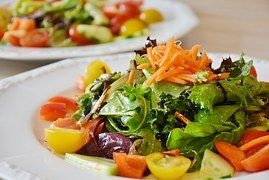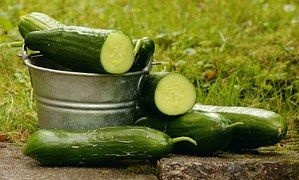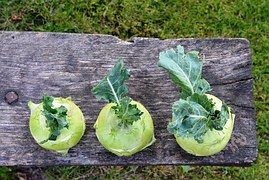Vitamin K is only discovered around 1920, so it is still not commonly known. It got its name from the German word Koagulation, which means coagulation ( to thicken and become solid ) in English.
Vitamin K is a group of vitamins that has 3 components; namely, Vitamin K1, Vitamin K2, and Vitamin K3.
· Vitamin K1 is found in plants foods
· Vitamin K2 is synthesized (produced) by the gut flora (good bacteria) in our large intestine using the K1 in our foods.
· Vitamin K3 is found preformed in foods, but in very small amount.
Separately, Vitamin K1 is an essential element in the process of blood clotting. Without Vitamin K1, the clotting process may not happen.
When our skin is cut or punctured, blood will flow out. The body must do something to stop the bleeding, otherwise, it will die. Therefore, it is necessary that vitamin K1 is present in our system.
Deficiency in Vitamin K will result in reduced coagulability of the blood and a tendency to bleed.
“Deficiency in Vitamin K will result in reduced coagulability of the blood and therefore,
a tendency to bleed.”
We see the importance of Vitamin K1 in our body, so we must be sure to include foods rich in Vitamin K1 in our daily diet.
 photo credit: www.pixabay.com
photo credit: www.pixabay.com
Plant Foods Rich in Vitamin K1
Vitamin K1 is the plant form of vitamin K; it is abundantly found in dark green leafy vegetables, and is present also in some herbs and fruits.
Green leafy vegetables like kale, mustard greens, collard greens, turnip greens, brussels sprouts, and broccoli are the excellent source of Vitamin K1.
Others like cabbage, cauliflower, spinach, Romaine lettuce, asparagus, bok choy, cucumber, tomatoes, are also good sources.
Fruits, like kiwi, grapes, avocado, pear, blueberries also contain Vitamin k1.
Vitamin K1 can also be found in herbs, such as, leeks, celery, bell pepper, basil, cilantro, sage, oregano.
Our daily need of Vitamin K can be easily taken from these plant foods, except when one does not eat vegetables regularly.
“Eating dark green leafy vegetables is necessary to maintain an adequate level of Vitamin K1
in our body.”

photo credit: www.pixabay.com
Vitamin k1 Deficiency
Normally, if we eat vegetables regularly we will not have any deficiency in Vitamin K1.
Cooking Guide
Vitamin K is fat soluble, so cooking them with a little oil may help in better absorption by our body. Vitamin K is not destroyed by heat, but it is vulnerable to oxidation, acids, alkali and light.
Vegetable oils also contain Vitamin K; and since Vitamin K is vulnerable to light, it is reduced by exposure to light. That is why it is advisable to store vegetable oils in dark areas, away from the sunlight.

photo credit: www.pixabay.com
Dosage
There is no known toxicity for Vitamin K. It is only when a person is on a certain medication to reduce the clotting of blood that the doctor will tell the patient to limit his intake of Vitamin K.
Vitamin K supplement is taken only with doctor’s prescription.



